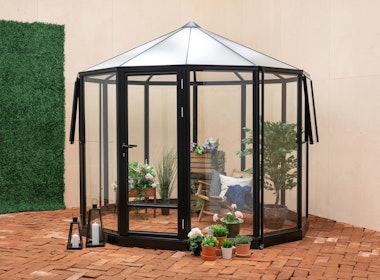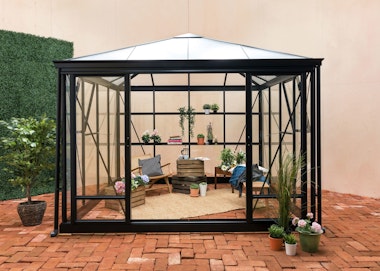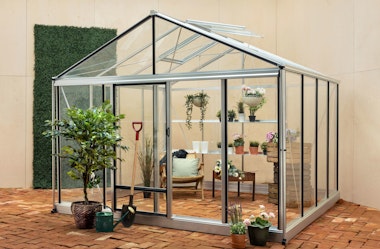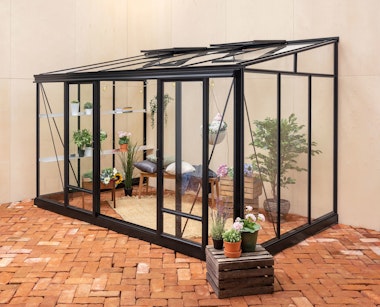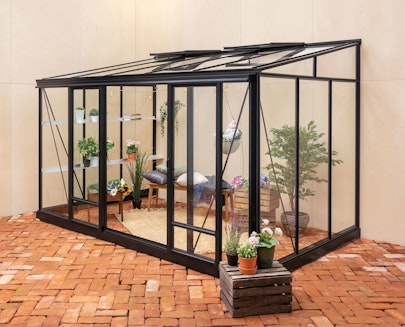
How to build your orangery
Agneta Broman / 2 min reading / Greenhouse
Have you considered building an orangery? If so - go for it! Life is far too short to spend only dreaming about things that are actually quite easy to realise. Buy an orangery in a kit from Polhus and it will be cheaper than buying one ready-made, but much faster than building one from scratch. Put simply, it's the best of both worlds.
A ready-to-build orangery in a construction kit
An orangery in a kit has many advantages. You know the cost in advance as well as what the finished result will look like. And most importantly - it's easy! A construction kit from Polhus can be put together by people with no construction experience, in no time at all. Everything is included: wood, windows, doors, fittings, etc. You don't have to calculate how much material you need and risk either ordering extra items or ending up with lots of leftover wood or screws. The drawings are easy to follow and could be used for a possible building permit application (check your local regulations).
There are two different types of orangery; free-standing and lean-to. The Polhus customer service department are always happy to help if you have any questions.
Many people turn their nose up at the word orangery. It sounds a bit pretentious, like something a professional gardener would build in the gardens of a a stately home or large mansion. But an orangery is really just a heated greenhouse where you can keep trees and plants that otherwise might not survive the winter.
An orange tree is one such plant, hence the name 'orangery'. It doesn't come from the English word for orange, but the French word, because an orangery was originally a southern European phenomenon. When the orangery was introduced into botanical gardens in the thirteenth century, citrus trees were the main attraction, because they couldn't be grown outdoors in northern countries. From the beginning it was mainly lemon trees, oranges didn't appear till a hundred years later. The choice of materials for the buildings may have changed since then, but the other features have remained the same.
Use the orangery as a conservatory
An orangery often has a timeless design - not too complicated and with no excess details or strong colours. An orangery is a room where the greenery is central, and the building itself should blend into the surroundings where possible. It's logical that orangeries would come to the north because they are no less useful here than in southern Europe - quite the contrary. In addition to plants that require heat for their survival, a heated conservatory can be used to extend the growing season. In an orangery, the plants can be pre-cultivated so that you can plant small plants in the spring instead of putting seeds in the soil and starting from scratch.
The best way to get started - our guide!
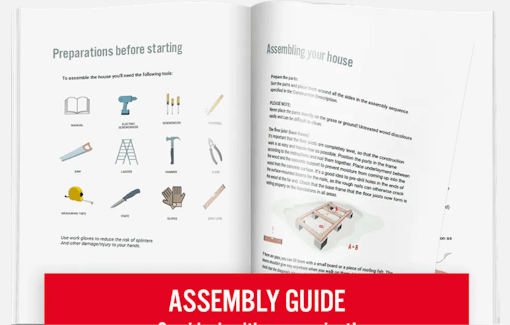
The best way to get started - our guide!
The assembly guide contains valuable tips and advice from our construction experts. A good base and a manual for those who plan to assemble the house themselves. We walk you through what’s important to consider before starting construction, the foundation options our experts recommend, and how the assembly works.
Read all about this and much more in our guide. We will send the assembly guide free of charge to your email. Good luck with your project!


